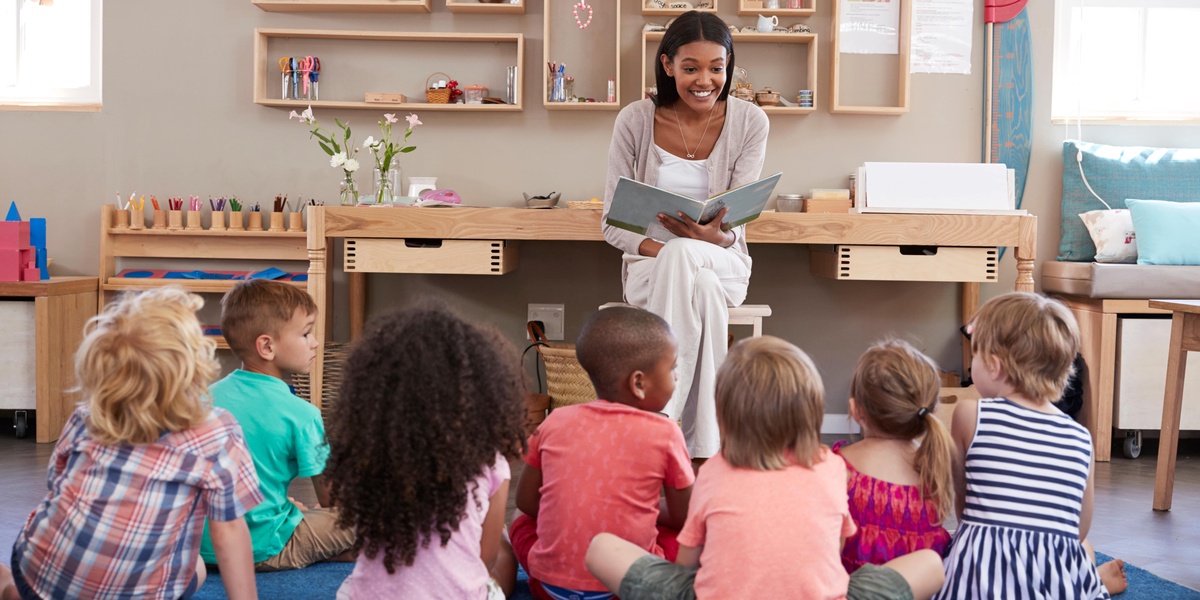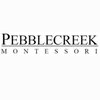If you're looking for an educational approach that fosters creativity, independence, and critical thinking in your child, then Montessori education might be the one for you. Developed by Dr. Maria Montessori over a century ago, this innovative approach to learning is designed to help children reach their full potential through self-directed activities and hands-on experiences. In this blog post, we'll explore what makes the Montessori curriculum so unique and why it's worth considering for your child's education. Let's dive in!
What is the Montessori Curriculum?
The Montessori Curriculum is a comprehensive and child-centered approach to education that focuses on building independence, critical thinking skills, and creativity. This educational philosophy was developed by Dr. Maria Montessori in the early 1900s and has been used successfully around the world ever since.
The curriculum is based on the belief that children learn best through hands-on experiences and self-directed activities. In a Montessori classroom, students have access to a wide range of materials specifically designed to support their individual learning needs.
One of the key features of the Montessori curriculum is its emphasis on mixed-age classrooms. Children are grouped together in three-year age spans which allows for peer-to-peer learning opportunities as well as personalized attention from teachers.
Another aspect of this approach is its focus on practical life skills such as cooking, cleaning, and gardening. These activities help children develop their coordination, concentration, and problem-solving abilities while also fostering responsibility.
The Montessori Curriculum provides an immersive experience that encourages children to explore their interests at their own pace while developing essential life skills along the way.
The Different aspects of the Montessori Curriculum
The Montessori curriculum is a well-rounded educational approach that focuses on developing the child's physical, emotional, cognitive and social needs. It aims to provide children with an opportunity to explore their interests at their own pace while also giving them the tools they need to succeed in life.
One of the key aspects of this curriculum is its emphasis on hands-on learning. This means that children are encouraged to use all of their senses when exploring new concepts and ideas. They are given a wide variety of materials and activities that allow them to discover things for themselves.
Another important aspect is the focus on individualized instruction. Rather than having students follow a set curriculum dictated by teachers, Montessori educators strive to meet each child where they are academically, emotionally, and socially. By doing so, they can tailor instruction accordingly and ensure that each student gets what they need from their education.
In addition, there is an emphasis on mixed-age classrooms in Montessori schools. This allows younger students to learn from older ones as well as providing older students with opportunities for leadership roles within the classroom.
One unique feature of the Montessori curriculum is its integration of practical life skills into daily lessons. Students learn how to care for themselves and others through activities such as cooking or cleaning up after themselves – skills that will serve them well throughout their lives
The benefits of a Montessori education
A Montessori education offers children numerous benefits that go beyond what traditional schooling can provide. One of the most significant advantages is that it fosters independence and self-direction in students by allowing them to learn at their own pace and explore topics of interest.
In a Montessori classroom, students are given the freedom to choose their activities, work collaboratively with peers, and engage in hands-on learning experiences. This approach helps children develop critical thinking skills, problem-solving abilities, and creativity.
Another benefit of a Montessori education is its emphasis on practical life skills such as cooking, cleaning or gardening. These activities help build confidence and teach responsibility early on in life.
Montessori schools also focus on building strong social skills through mixed-age classrooms where children learn from each other while developing empathy for others' needs. The philosophy values respect for one another's differences; hence personality traits like kindness are developed from an early age.
The benefits of a Montessori education extend beyond academic excellence but also prepare children for life ahead by fostering independence along with social awareness within each individual student.
Montessori schools in the United States
Montessori education has been gaining popularity in the United States for several years now. As a result, there are many Montessori schools across the country that offer a unique approach to learning.
These schools vary in size and location, but they all share a commitment to providing an individualized education for each child. They strive to create an environment where children can learn at their own pace, explore their interests, and develop critical thinking skills.
Many Montessori schools also place an emphasis on hands-on learning and practical life skills. This means that students may spend time cooking, gardening or participating in other activities that help them develop important life skills.
If you're interested in finding a Montessori school near you, there are several resources available online. You can search for schools by location or browse through directories to find one that meets your needs.
It's important to note that not all Montessori schools are created equal. Some may be more traditional while others have adapted the curriculum to meet modern educational standards. It's always best to do your research before choosing a school so you can find one that aligns with your values and goals for your child's education.
The growth of Montessori education in the United States is indicative of parents' desire for alternative approaches to traditional schooling methods. With its focus on individualized learning and hands-on experiences, it's no wonder why so many families are turning towards this method of education as an option for their children.
How to find a Montessori school near you
Finding a Montessori school near you can be an exciting and challenging process. The first step is to conduct research on the internet or through word of mouth recommendations from friends and family members.
One way to find a Montessori school is by using online directories such as Association Montessori International (AMI) or American Montessori Society (AMS). These directories provide detailed information about accredited schools in your area, including their contact details and website links.
You can also attend open houses and tours organized by local schools that offer Montessori education. Such events allow you to interact with teachers, students, administrators, and other parents who have children enrolled in the program.
Another great option is reaching out to professional organizations like AMI or AMS for help finding a reputable Montessori school near you. They often have trained professionals who can guide you through the selection process based on your child's age group, learning style, budget, location preferences among others.
Don't forget to trust your instincts when choosing a Best Montessori school for your child. You should feel comfortable with the environment provided at any potential institution before selecting it!
Conclusion
To sum up, the Montessori Curriculum is a unique and comprehensive approach to learning that emphasizes student-driven exploration, hands-on experiences, and individualized instruction. It's designed to help children develop academically, socially, emotionally, and intellectually in a holistic way.
Through its focus on practical life skills, sensorial activities, mathematics, language development, cultural studies and more; the Montessori curriculum provides an integrated education that helps students become well-rounded individuals who are prepared for future challenges.
If you're considering a Montessori education for your child or want to learn more about this innovative approach to learning; take the time to research schools in your area and visit them. Seeing firsthand how Montessori classrooms work can give you insight into whether it's right for your family.


No comments yet